David Vining's Blog, page 164
March 2, 2021
The Age of Innocence

My reaction to Martin Scorsese’s The Age of Innocence reminds me a lot of my reaction to David Lean’s Hobson’s Choice. Both are great works by master filmmakers that have been overshadowed by more well-known films, but they both prove to me, definitively, of the greatness of the filmmakers in question. There are filmmakers who aren’t that great who end up making a single film that fires on every cylinder, but then there’s Scorsese having made his name with a particular type of modern and mas...
March 1, 2021
Terminator 2: Judgment Day

If I were to judge this film purely on its action spectacle merits, I’d probably love it at the same fulsome level that most of the filmgoing world does. However, there is story to be had, and some of the inelegance holds me back to merely loving it as a very good film overall rather than one of the greatest ever made.
It’s an interesting contrast where the first Terminator film didn’t have a line of expository dialogue for its first forty minutes, but the second Terminator film is almost...
February 26, 2021
Cape Fear (1991)
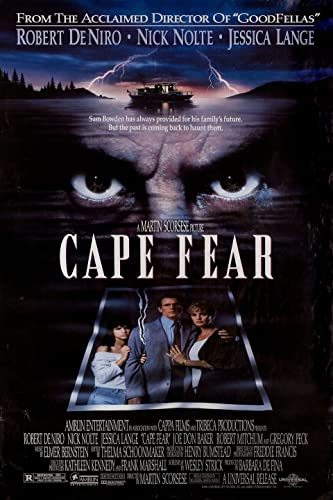
It seems like most directors want to make a tribute to Hitchcock at some point in their careers. Zemeckis did it with What Lies Beneath, and even the original Cape Fear by J. Lee Thompson was an homage to the then living master. Scorsese comes along and take an homage to Hitchcock and makes another homage to Hitchcock, using color to directly invoke Vertigo in particular.
Ironically, I feel like the movie’s greatest strength and the source of most of its problems is the same: Robert de Ni...
February 25, 2021
The Terminator
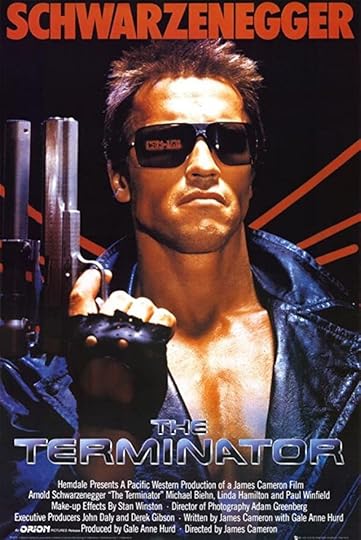
This is a testament to the power of craft in building a movie. Made inexpensively but never feeling cheap, James Cameron’s first full directing credit (he worked a grand four production days on his first credited directing job, Piranha II: The Spawning) has the kind of polish one might expect from someone several movies deep. There’s an assuredness to the filmmaking and storytelling while managing to feel surprisingly unconventional and working exceedingly well at the same time.
There isn...
February 24, 2021
Goodfellas
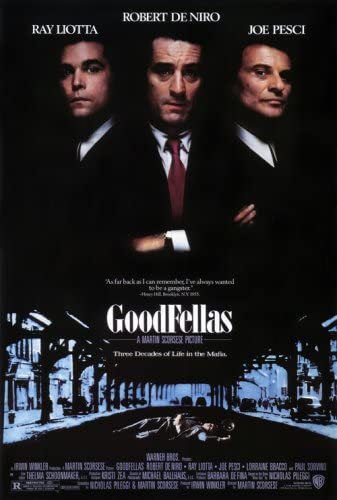
I’ve often wondered at the popularity of certain films based on my own personal model of storytelling. In my model, there are four major elements of storytelling (character, plot, style, and theme) which every story contains in different amounts. Part of taste is based on preferences for the different elements, and I’ve figured that most of the mass audiences prefer plot over the other three. As long as there’s a heavy plot, then audiences will be open to the storytelling presented. Goodfell...
February 23, 2021
The Color of Money
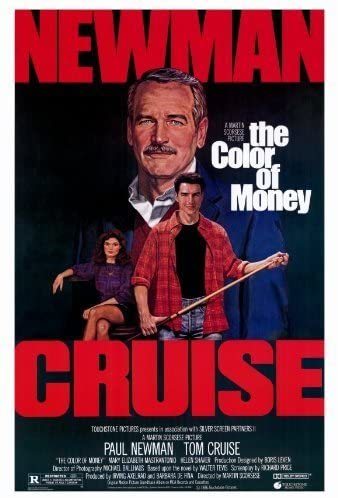
Where Martin Scorsese took the sports movie in the direction of a dark, character driven exercise of personal exploration in Raging Bull, he takes the genre in a more conventional direction in The Color of Money. The sequel to The Hustler, made 25 years after the original, is a much more straight forward sports movie than either the sports movie Scorsese made earlier as well as the movie’s immediate predecessor. It’s a lesser, simpler exercise, but it’s still buoyed by a handful of winning p...
February 22, 2021
The Hustler
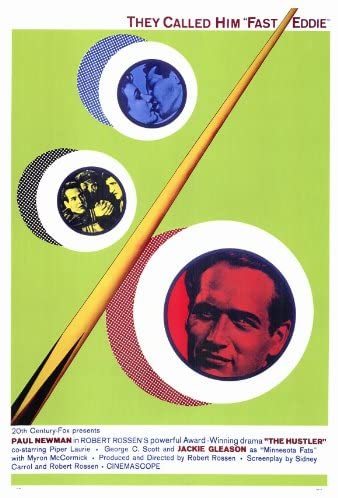
I love the feeling of a well-adapted novel to film. Scenes have breathing room and the traditional three act structure of a movie gets abandoned for a greater focus on character rather than plot. Even though it’s an original screenplay, it’s one of the reasons I love Tarantino’s The Hateful Eight, which, I think, has a similar feel. The story of Paul Newman’s Fast Eddie as he rises, falls, and rises again in the world of the poolhall gives so much room for Fast Eddie, Sarah, and Bert to brea...
February 19, 2021
After Hours

Martin Scorsese obviously has a dark sense of humor. After Hours, his only outright comedy, is the tale of a young man who travels across Manhattan to meet a girl in the middle of the night and ends up being chased down by a mob convinced he’s a thief, trying to kill him. Inspired by Kafka and Hitchcock, After Hours is a very funny look at a night gone wrong, with our yuppie hero lost at how he got into the mess and how he could possibly get out of it.
We begin with Paul Hackett, a word p...
February 18, 2021
Lone Wolf and Cub: The Definitive Ranking
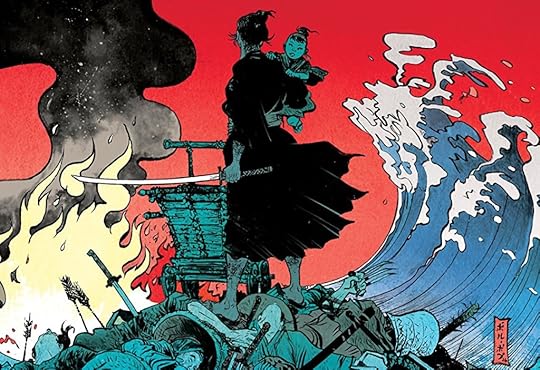
I was expecting more from the Lone Wolf and Cub franchise. It was the IMDb ratings of the individual films (that never go below 7 and occasionally go over 8) and the fact that the Criterion Collection released it. All of that led me to believe that these movies were more than trash cinema that only intermittently worked. Considering their brief production schedule (all being made in about a two year period and based on an existing manga), I was expecting a far more cohesive experience across...
Lone Wolf and Cub: White Heaven in Hell
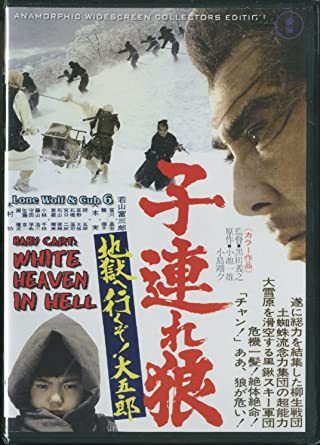
And so comes to an end the original six films of the Lone Wolf and Cub franchise, completed before the end of the manga, denying a complete end to the conflict between Itto Ogami and the Yagyu clan. In the hands of director Yoshiyuki Kuroda, Ogami and Daigoro meander through another cobbled together actioner that at least has the smarts to shake up the aesthetics and mythos of the action, providing something new.
The film begins with what seems to be real focus. The Yagyu Clan is on the v...



